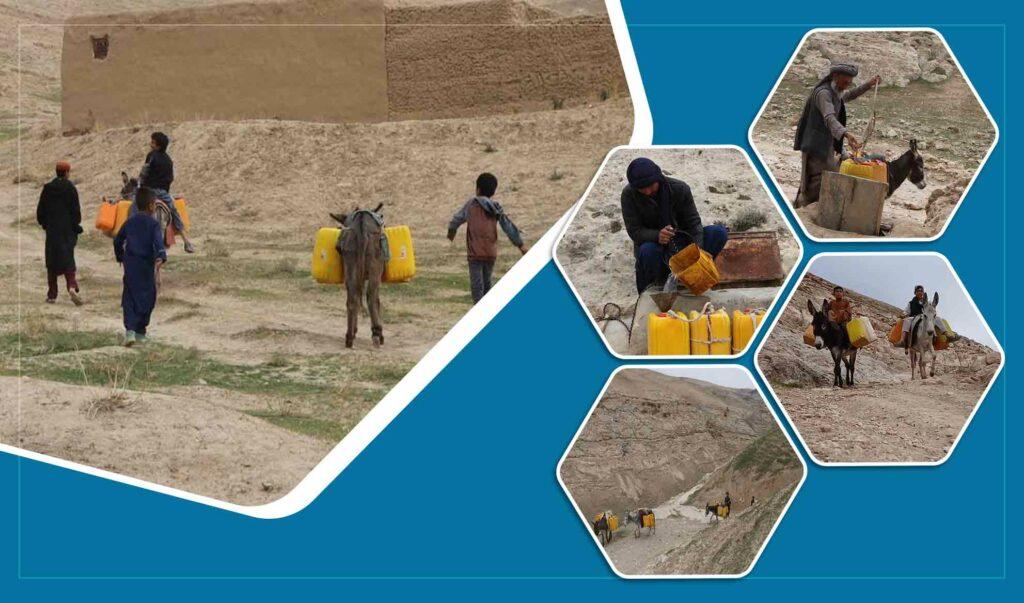MAZAR-I-SHARIF (Pajhwok): Residents of various villages of the Alborz district of northern Balkh province complain of a potable water shortage, seeking a solution to the problem.
Alborz, a mountainous area, is located 85 kilometers from Mazar-i-Sharif, the capital of Balkh. After the Taliban took control, it was separated from the Chamtal and announced as a new district.
Some of its residents say due to drought and lack of clean water, they are forced to travel several kilometers to fetch water for drinking from ponds.
Meanwhile, local authorities confirmed this issue and stressed the need for a solution.
Mohammad Ishaq, a 52-year-old resident of Chaqnaq village, told Pajhwok Afghan News the area people were facing difficulties due to the lack of access to clean drinking water.
He added there were some ponds in the village from where rainwater was collected, and people used it for drinking.
He said, “There are ponds in the village, but they are dirty and even animals bathe there. However, we have no other choice but to drink this water, which causes health problems for the people.”
Mohammad Ishaq urges the interim government to address this issue.
Abdul Qudus, a resident of Garmali village, also grumbled that most people of the district did not have access to clean water, and some fetched it from several kilometers away using donkeys or horses.
He also highlighted the poor condition of roads and lack of access to healthcare services as major problems, urging the government to prioritise resolving the water shortage issue.
Mohammad Naeem, another inhabitant, says every year in summer, they create ponds in various parts of the village to store rainwater and snowmelt.
He added clean water supply networks had been established in other districts of Balkh, but his area had not received any attention.
Saifullah Mutasim, administrative chief of the district, acknowledged the people’s problem, saying three check dams had been built in the district to address potable water shortage issue.
He said, “Around 75,000 people live in the 155 villages of Alborz, and 95 percent of them face water problems, using rainwater for drinking.”
Deputy Governor Noorullah Abu Idrees promised provide services to the areas previously affected by conflict and this issue would be addressed at the earliest possible.
sa/mud







GET IN TOUCH
NEWSLETTER
SUGGEST A STORY
PAJHWOK MOBILE APP